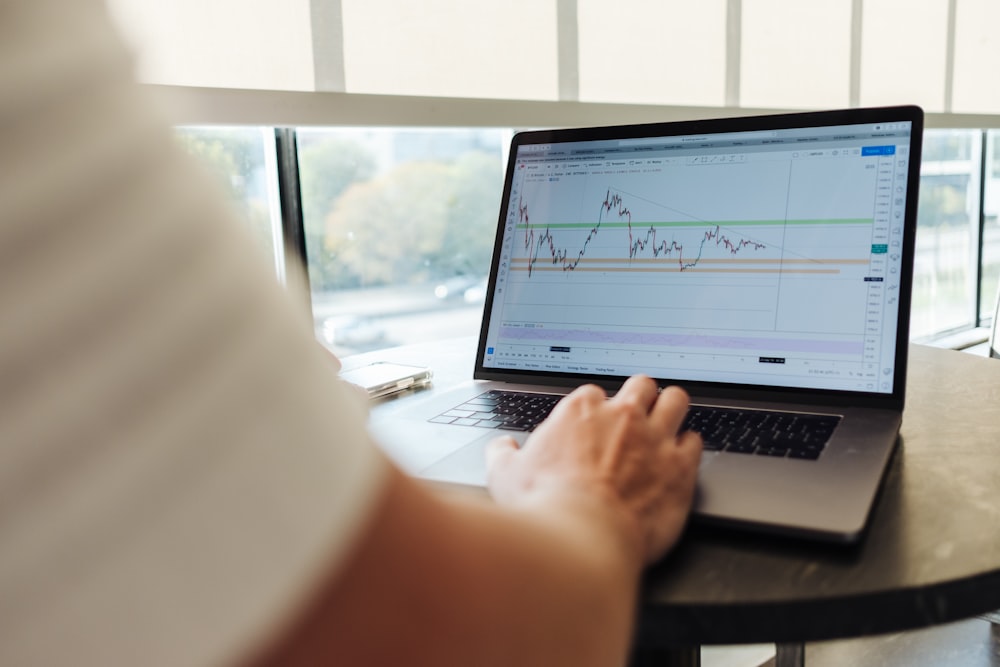One Company That Is Taking Data To A Whole New Level
As different as they may be as individuals, there’s one thing the nearly 5 billion people who are online these days have in common.
They’re all data broadcasters.
Let me explain. Every time any of us goes online to shop or do research we generate a wide range of information about our searches, locations, buying habits, and much more.
Turns out some privately held companies hope to let consumers cash in on the roughly 2.5 quintillion bytes of data created every single day. That’s the number 2.5 followed by 18 zeroes.
Image Source: Unsplash
And while I applaud these entrepreneurs, I don’t see this really paying off for the average tech investor. We’re talking a few hundred dollars a year at best.
I believe you’d do much better to invest in a tech leader that has a unique hook in big data, a market on pace to be worth $103 billion by 2027.
Let me show you why this company has over doubled the return of the S&P 500 over the last year…
Making Decisions with Big Data Profitable
Now then, in the growing digital world, it’s almost impossible not to leave a trail of data behind you.
Everything you post, click on or read in your social media feeds. Your web searches, your online purchases, products you looked at online but didn’t buy – even the location of your phone when it connects to your wireless provider…
It’s all data that someone somewhere is collecting and usually then selling on to someone else.
The value of that data is immense. Currently, we generate it but don’t reap the monetary benefits. That’s what, as the Wall Street Journal recently reported, a slew of companies and entrepreneurs want to change.
Take Brave Software, for example. This company makes a browser, also called Brave, that’s already changing things up. Much like Google Chrome, Microsoft Edge, or Firefox, Brave lets you browse the web.
The difference is that Brave pays out 70% of the revenue it generates from ads to its users – the people who see those ads.
In other words, it’s paying you for the data you generate.
Unfortunately, this just isn’t a lot of money. See, the online data economy is so huge not because each one of us generates a fortune’s worth of information every day.
Users of Brave, the browser that pays you for looking at ads, only get paid about $5 to $10 per month.
It’s because there are billions of us online.
It’s far better to invest in a company that knows how to monetize actionable data.
The Metaverse is also creating billions of actionable data points as one of the companies we have identified is about to digitize every indoor space in the world.
That’s where Verisk Analytics, Inc. (Nasdaq: VRSK) comes in. This company has been analyzing risks and opportunities for insurance, energy, and financial services industries since its start in 1971.
But its ability to really dig deep has been leveraged significantly with advances in computing models.
That’s how Verisk serves its various customers across several industries, including the three key ones of insurance, energy, and finance.
Insurance, after all, is all about data. Insurance companies examine all the risks involved in insuring a business and how much it may cost to mitigate those risks, or how much it would cost to pay off if those risks arise.
The more data you have about the business, the better. But more important than the amount of data is what you can do with that data. That’s Verisk’s expertise.
The firm got its start as an insurance advisory rating agency and that was its primary business for its first 25 years.
For example, knowing as much as possible about the business you plan on insuring and how that business depends upon certain inputs and weather conditions is hugely important. Those are all extrapolations that Verisk can easily draw from data.
Or take the oil and gas sector, where Verisk tracks more than 55 million distinct pieces of data, helping guide decisions about where to invest, and just as important, where to avoid.
In finance, credit card issuers use Verisk’s data to analyze transaction data, spot fraud, gauge the effectiveness of promotions and adjust fees. The firm tracks more than 5 billion transactions and offers 2.2 petabyte data set to banking industry clients.
Of course, once a company starts using and acting on Verisk’s data analysis, it’s hard to stop. That’s why the company can boast that at least 80% of its revenues have been recurring, not one-off, since 2016.
It’s like putting sales and profits on autopilot.
In short, the best way to profit from the big data market, which is expected to top $103 billion by 2027, isn’t to dabble in the $10/month “ad payback” schemes like Brave or Foursquare.
It’s to invest in a data analysis company like Verisk, that creates powerful models for its data-rich clients to act and profit on.
And this is a shareholder-oriented firm buying back shares. In the third quarter of this year alone, Verisk bought back $150 million dollars’ worth.
Another roughly $680 million in share buybacks is already authorized.
Since the market rebounded last May 12, Verisk’s stock has doubled the S&P 500’s return.
With so much built-in support for the stock, it should continue to capitalize on the need for actionable data for many years to come.
See disclaimers here.




